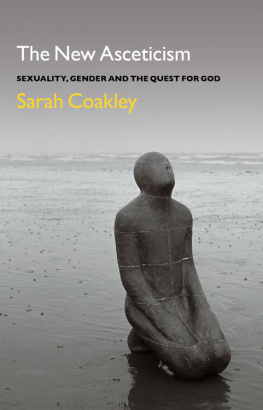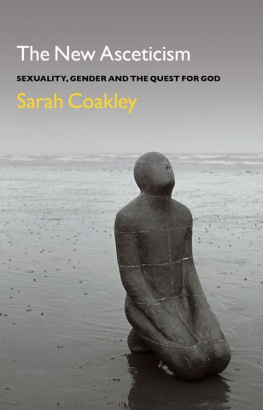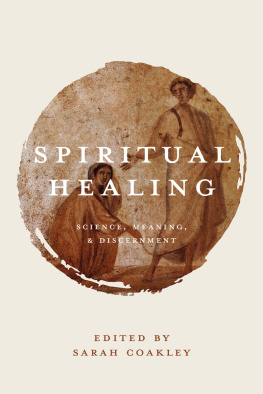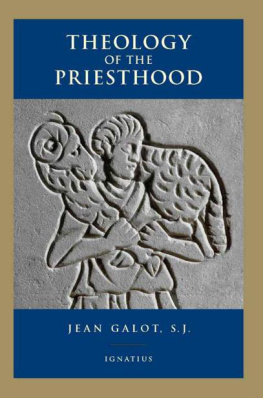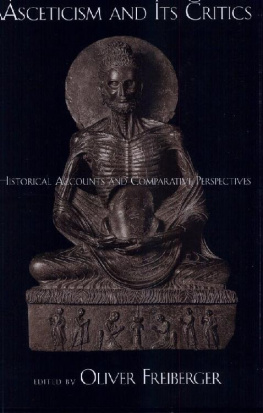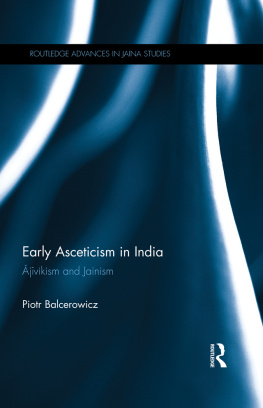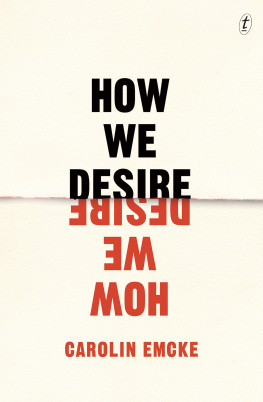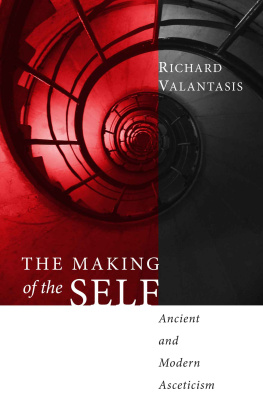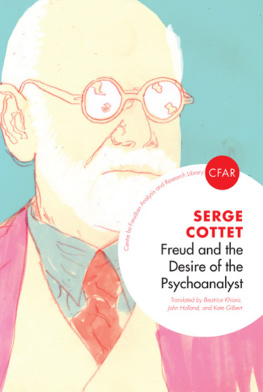

For my mother, the teacher,
who taught me to pray
And my father, the lawyer,
who taught me there is no justice
without mercy
I owe a great debt of gratitude to Robin Baird-Smith at Bloomsbury, whose idea this little book originally was, and without whose encouragement, patience and enduring goodwill I would not have brought it to completion. It was Robin who first saw that the essays I had been writing here and there in the last decade on the topics of desire and asceticism made up a consistent theme, and that this might be worthy of presentation to a wider public, indeed that its specifically Anglican origins might also have wider ecumenical interest. His understandable frustration at my many delays has been matched by a graciousness for which I want to give public thanks.
A number of my colleagues, friends, parishioners and students in both the United States and Britain have contributed their wisdom, insight and assistance to the contents of this volume. In particular I want to mention Philip McCosker, Raphael Cadenhead, David Grumett, Kimberley Patton, Charles Hefling, Columba Stewart, OSB, Truman Welch and the people of the Church of the Good Shepherd, Waban, MA, and the Brothers of the Society of St John the Evangelist at Memorial Drive, Cambridge, MA, especially Geoffrey Tristram, SSJE, Curtis Almquist, SSJE and David Vryhof, SSJE. I think they will all know why I need to thank them, and for many different blessings.
My husband Chip Coakley has conducted a fine printers experiment for the purposes of this book, by designing in InDesign the layout of all the pages, utilizing the lovely Gill typeface, Perpetua. This proved to be a more complex and exacting task than he had anticipated, and as ever I am indebted to him for his love and sacrificial commitment to the projects of others.
In the time in which I have been completing the editing of these essays, my parents have been painfully confronting their own ill-health, vulnerability and physical decline, after a triumphantly long marriage of over sixty-five years. Gregory of Nyssa (who features so significantly in the opening to this book) has well commented that old age and approach-ing death mark the boundaries in which we can best assess the meaning of desire and the project of an ascetic life; and this is as true for those who minister to, and watch with, the dying as for those who do the harder task of enduring it. I dedicate this little volume to my beloved parents as they confront this last battle that leads into Life.
Sarah Coakley
Ely, Petertide, 2015
This book has been written in the conviction that contemporary Western secular concerns about bodily life in general, and about sexuality, gender and orientation more specifically, are marked by certain striking and unresolved paradoxes, ones which are arguably still haunted by a lost religious past.
Hence the current ecclesiastical furores about sexuality may seem strange, even repulsive, to a watching secular world-without-religion.gathered in this volume, they are the working out of a conundrum about desire and gratification in both the Christian tradition and the contemporary secular West (which is so much its own product). And they encode both the worst in the Christian tradition (abuse, denial, duplicity, patriarchal dominance, arrogant refusal to listen to feminist and gay voices), and something of the best (a longing for sexual justice, for family and social stability, for a world in which pleasure and commitment are rightly related, for a loving realism about sexual frailty and forgiveness worthy of the teaching of Jesus, its founder).
Yet it is an unfortunate but predictable feature of the current homosexuality debates, specifically, that it is the extreme positions (both within and outside the churches) which are the ones which get all the attention. These extremes are also widely and straightforwardly associated, at least in the press, with political as well as theological conservatism and liberalism, an analysis which oversimplifies a much more complicated set of alternatives in reality. This unfortunate state of affairs effectively obliterates the possibility of a discussion which would move the debate beyond repression and its seeming opposite promiscuous libertinism. Thus a much bigger challenge has here been missed: that of how to evaluate and adjudicate desires, both sexual and others, and how to live a life of balance and moderation such that desire is negotiated with ascetical realism, and in a mode conducive to genuine human flourishing. And this is a challenge whose significance clearly spreads well beyond the Christian fold. Moreover (and as a little further reflection begins to make obvious), this is also a matter that affects not just individuals, but families, societies and political and economic realities world-wide.
At the heart of this book, then, is an analysis of a striking contemporary confusion about desire itself, a clarification of the unconscious paradoxes that inhere in this confusion, and a proposal for its resolution through the recovery of a new vision of ascetic life. Clearly both these key terms (desire, asceticism) require careful definition. The first purpose of this book, then, is to suggest a new way of defining and thinking about these two topics and their relation: this project animates the volume as a whole, and is repeatedly returned to throughout it. The chief problem with the category of desire is that it has become so heavily sexualized in the modern, post-Freudian period as to render its connection with other desires (including the desire for God) obscure and puzzling. The chief problem with the category of asceticism is that within the same period it has become larded with the negative associations of repression, ecclesiastical authoritarianism, and denial. It follows that another, and deeper, level of reflection is required if these difficulties are to be faced and resolved.
The second purpose of this book therefore unfolds from here. It is to suggest a means of resolution of these entangled problems, one which is unambiguously and unashamedlycommodifications of desire. When the ascetic life works, and works well, it unifies, intensifies and ultimately purifies desire in the crucible of divine love, paradoxically imparting true freedom precisely by the narrowing of choices. If this is where true joys are to be found then the lost theological wisdom of the ascetic life is indeed one worth retrieving.
But where are we to start in this project of retrieval? Our very understanding of desire is the first hurdle to be negotiated.
Retrieving Desire from Sex
Gregory of Nyssa, the fourth-century Greek theologian who features large in this volume, had the (to us) strange insight that desire relates crucially to what might be called the glue of society. The erotic desire that initially draws partners together sexually has also to last long enough, and to be so refined in God, as to render back to society what originally gave those partners the possibility of mutual joy: that means (beyond the immediate project of child-rearing and family) service to the poor and the outcast, attention to the frail and the orphans, a consideration of the fruit of the earth and its limitations, a vision of the whole in which all play their part, both sacrificially and joyously. It may seem odd now to say that that is where eros should tend; for we have so much individualized and physicalized desire that we assume that sexual enactment somehow exhausts it (and so threatens to run out completely in old age, as bodily strength withers). Thus it is the complete intertwinement of physical and
Next page
